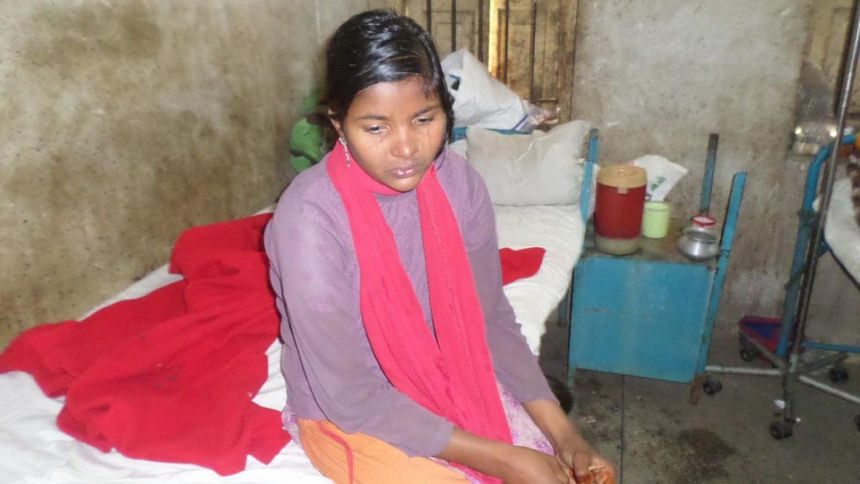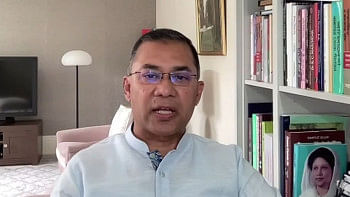A Place of Dread

THE dejection in 15-year-old Ranjina Khatun Rojoni's face says it all. Physical pain, humiliation, disillusionment and despair are all written in that child's countenance – expressions that tell us how we have failed our children. For are we not part of this barbarism that allows a teacher to cane a child for not wearing her uniform, something her day labourer father could not afford? Rojoni was called out during assembly by, ironically, the fine arts teacher, who just started mercilessly beating her with a cane until she lost consciousness. She had to be treated at the hospital for three days. Barely able to contain her tears, Rojoni, a Class VI student of Ramnagar Government Primary School in Chatmohar upazila of Pabna, told a reporter that she did not want to go to school anymore because she was afraid that the teacher would beat her again.
So why didn't anyone stop him? The answer most likely lies in the fact that beating up students by teachers is an age-old practice, accepted by many teachers and parents alike, as part of disciplining children. Thus a High Court ruling that banned corporal punishment in Bangladesh schools and madrassas five years ago has had little effect on the mindsets of teachers and school authorities.
In fact, had our Pabna correspondent, Ahmed Humayan Kabir Topu, not filed this story or sent her picture that was published, it is quite likely that nothing would have happened to this sadistic teacher, giving him license to continue such despicable behaviour. But even such publicity may not guarantee appropriate punishment for such a crime.
An inquiry committee, formed by the primary education officer of the upazila, found the teacher guilty. Guess what his punishment was for physically harming a child and most probably psychologically scarring her for life? He was dismissed from the school and transferred to another school in another remote area. So until departmental action is taken against him, this man will be allowed to teach in another school.
Meanwhile hundreds of other children in schools and madrasas will continue to be victims of sadistic teachers who get high on the power trip of violence. Needless to say, children from poor families will be targeted more because poor parents seldom protest injustice in fear of more injustice. Rojoni's father, a poor day labourer, has not filed a case hence criminal proceedings against the teacher who has definitely committed a crime, will not be taken.
While there are still many examples of teachers who have dedicated their lives to nurturing young minds, with patience, kindness, knowledge and integrity, there are also many instances of teachers taking pleasure in cruel punishment of children. The reports of students being whipped, punched, their hair shaved off, chained and so on, are many but they are still only a fraction of what really goes on in the name of discipline. In poor, remote areas where there is little or no monitoring, primitive traditions like caning a child linger and flourish.
But even when physical punishment is not used teachers often resort to verbal abuse – using humiliating language to demean a child, destroying her self-worth, sense of security and sometimes even her ability to learn. There are many adults who still believe that a little slap now and then is the best way to discipline a child and it is this notion that condones the practice of corporal punishment. We do not need studies to tell us that hitting children does not make them more responsive to learning, quite the opposite in fact. Psychological trauma ranging from depression to sociopathic tendencies can all be attributed to childhood experiences of corporal punishment. The High Court directive, endorsed by the government, that has defined corporal punishment as 'cruel, inhuman and degrading treatment and a clear violation of a child's fundamental right to life, liberty and freedom' and therefore prohibited, must be followed through in each and every school, no matter how remote. If education is the basic foundation of nation building we must ensure that no child sees school as a place of dread but rather as a place of safety, fun and learning.
The writer is Deputy Editor, Editorial & Opinion, The Daily Star.

 For all latest news, follow The Daily Star's Google News channel.
For all latest news, follow The Daily Star's Google News channel. 



Comments